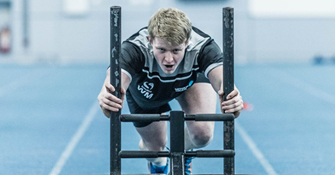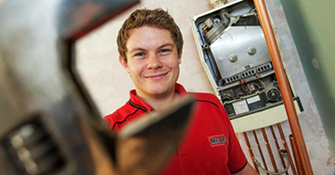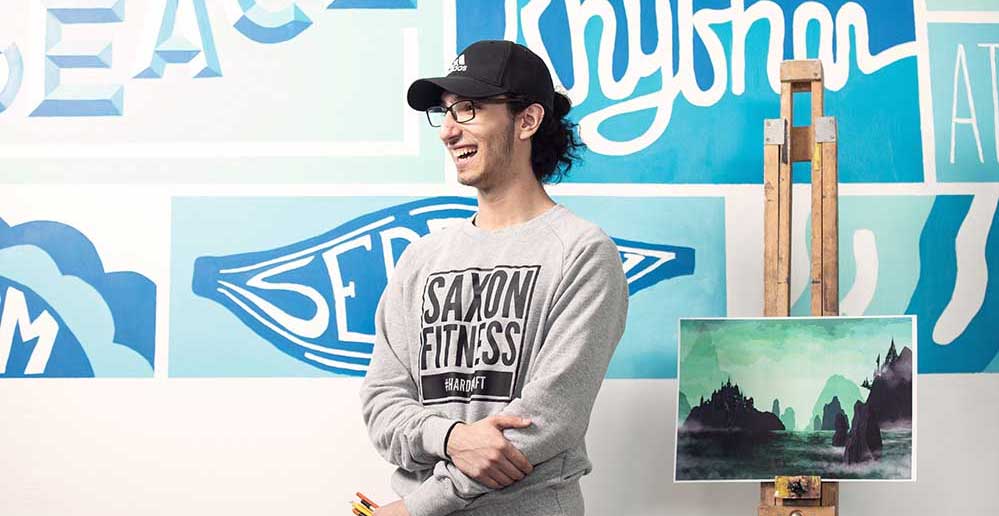I'm 16-18
If you’re getting ready to leave school or have just recently left, there are four ways you can choose to study with us:
What type of qualification is right for you?
What are they?
You can study a wide range of A Level subjects. You can also combine an A Level subject with a vocational study programme, such as Sports Science, Criminology and IT.
In detail
A Levels tend to be more academic and a traditional way of learning. With us, you’ll also gain work experience. Students will have tutorials in each subject they choose and an exam at the end of each year.
Is it for me?
If you like writing essays, sitting exams and a traditional style of learning similar to school.
What level of qualification will I achieve?
A Levels are Level 3 which carry UCAS points.
What does they lead to?
University, apprenticeship or a job. Most of our A Level students progress to university, some to Russel Group universities which are the best in the country. Others step straight into work.
Can I still go to university after college?
Yes. Many of our students from both our A Level and vocational study programmes progress to university.
How do I apply?
You can start your application by completing the short application form on our course pages. We’ll then invite you in to an enrolment event where you will have a chat with a teacher and complete a full application form to secure your place (subject to achieving the required entry grades.)
For some courses you may need an audition or further interview, but we’ll let you know this at the enrolment event.
Or you can just drop into any of our enrolment events and go from there.
You can also have a one-to-one appointment with our career advisers who will help you to make a decision that's right for you.
What are they?
We offer a range of subjects across 19 different industry sectors. You pick just one vocational subject. Fast-track to an apprenticeship option is available.*
In detail
More practical and hands on, vocational study programmes will equip you with skills in a specific industry or trade. Progress is assessed through projects, portfolios and practical work, with some courses including exams.
You’ll have lots of contact with our network of employers to help you prepare for the world of work. This will include work experience, competitions and live commissions set by employers and attending guest speaker lectures and conferences.
Types of vocational courses include diploma, NVQ, BTEC, City & Guilds, certificate and extended diploma.
Is it for me?
If you enjoy practical, hands on learning and focusing on one subject area.
What level of qualification will I achieve?
There are four levels; Entry, Level 1, Level 2 and Level 3. . Each level has different entry grade requirements which hare detailed on each course outline. Level 3 is equivalent to studying A Levels.
How long do they last?
One or two years depending on the course.
What do these courses lead to?
University, an apprenticeship or work.
Our students go onto enjoy brilliant success. Some step straight into work, sometimes with the employer they did work experience with. Others secure a place at university, with many achieving places at Russel Group universities, considered to be the best universities in the country. And some take up an apprenticeship, combining further training with a paid position.
What if I change my mind?
If you decide you don’t like your study programme in the first few weeks of term, we’ll help you to find another course or subject area that suits you better.
There is also the option to fast-track to an apprenticeship mid-way through your study programme. If you're doing well, you may be able to finish your course early and move or 'fast-track' onto an apprenticeship, should a suitable vacancy become available.
Can I still go to university after college?
Yes. Many of our students from both our A Level and vocational study programmes progress to university.
How do I apply?
You can start your application by completing the short application form on our course pages. We’ll then invite you in to an enrolment event where you will have a chat with a teacher and complete a full application form to secure your place (subject to achieving the required entry grades.)
For some courses you may need an audition or further interview, but we’ll let you know this at the enrolment event.
Or you can just drop into any of our enrolment events and go from there.
You can also have a one-to-one appointment with our career advisers who will help you to make a decision that's right for you.
What are they?
Apprenticeships are a mix of working and practical training.
In detail
Apprentices usually spend four days in work and one day at college. You will be paid a weekly wage and complete a collection of qualifications including a vocational qualification and a technical certificate relevant to the industry, as well as English, maths and ICT.
Are they for me?
Apprenticeships are ideal for those who are ready for a job and are keen to earn a wage, whilst still learning new skills and knowledge.
What level of qualification will I achieve?
There are three levels; Level 2 or intermediate, Level 3 or advanced and Level 4+ or higher apprenticeships. Level 3 is equivalent to studying A levels and Level 4+ can be foundation or honours degree level.
What do apprenticeships lead to?
You can progress through the apprenticeship levels if supported by your employer. Many Level 4+ apprentices are qualified to step into management positions.
What if I can’t find a vacancy?
Sign up to our Apprenticeship Alerts and we’ll let you know as soon as a suitable vacancy becomes available.
We’d also recommend that you start a vocational study programme in the area you’re looking for an apprenticeship in as you’ll learn relevant skills and knowledge that you can transfer to an apprenticeship if you’re successful in securing one.
What are they?
Introduced from 2019 T levels follow GCSEs and are equivalent to 3 A Levels. They are a two year qualification.
In detail
Focusing on one subject area, T Levels combine classroom learning, practical activities and a work experience placement.
Are they for me?
If you like practical learning and what lots of experience with employers in a workplace.
What level of qualification will I achieve?
T Levels are at Level 3, the same as three A Levels or a Level 3 Vocational Study Programme.
What does the course lead to?
University, a higher apprenticeship or into work.
To find out more about T Levels click here.
FAQs
Colleges often have better links with employers, offer more independence and are more closely connected to the world of work. At Gateshead College, we have a network of over 450 employers who offer work experience, set commercial projects, consult on our study programmes, mentor our students or come to college as guest speakers.
This means our students are plugged into the world of work from day one, making valuable contacts and learning about different industries and gaining skills and experience to boost their CV.
You’ll also be treated like an adult; you don’t have to wear a uniform, you’ll call your teachers by their first names and you may have more independence and a more flexible timetable rather than the 9am to 3pm school day.
Yes. Around 84% of our students from both our A level and vocational study programmes progress to university.
No. We expect all our students to work hard, but we’ll help you every step of the way. You’ll have regular one to ones with your teachers to set targets, track your progress and talk about extra support if you’re struggling.
And we’ll work hard for you too. We’ll do everything we can to inspire you, motivate you and help you to succeed.
We offer courses from Level 1 to Level 3. Each level of programme has different entry requirements, which are the different GCSE grades you need to get on the course. You’ll find these on each course information page.
Don’t worry if you don’t get great GCSE grades, we have Level 1 courses that don’t tend to have entry requirements. You can then work your way through the levels.
It’s important to pick something that you enjoy and that you’re good at.
Come along to an enrolment event or taster session – you can meet our teachers, have a look around and speak to some of our students.
You can sign up to any of our courses online by completing the short application form on our course pages. We’ll then invite you in to an enrolment event where you will have a chat with a teacher and complete a learning agreement form to secure your place.
For some courses you may need an audition or further interview, but we’ll let you know this at the enrolment event. Or you can just drop into any of our enrolment events and go from there.
You can also have a one-to-one appointment with out career advisers who will help you to make a decision that's right for you.










